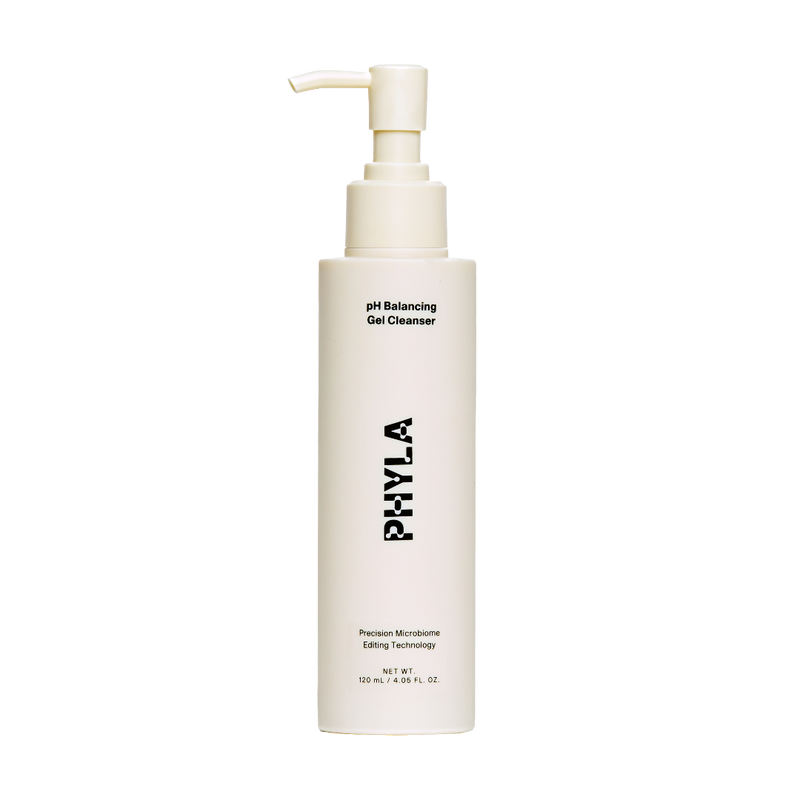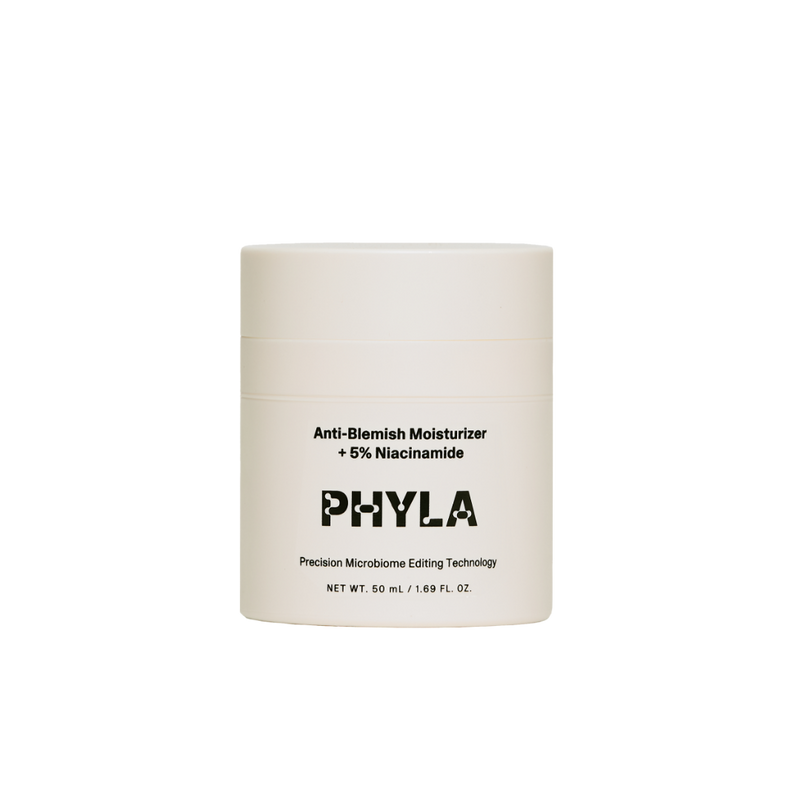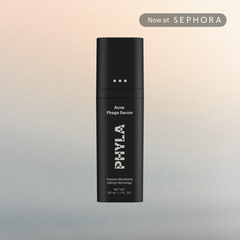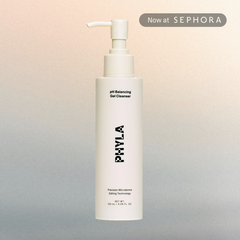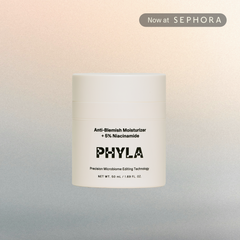How Does Stress Impact Your Skin?

While modern-day living has advanced our lives in many areas, it has also cultivated a society that struggles with prioritizing our physical and mental wellbeing. A by-product of living a modern lifestyle is stress. Stress is a natural physiological response that occurs in the body when we encounter a threat or a challenging situation. When we’re exposed to stress, our body releases stress hormones such as cortisol and adrenaline - triggering a fight or flight response. While stress is a natural response, prolonged stress can have negative effects on our health and on the largest organ of our body - the skin.
Short-term vs. Long- Term Stress:
The body presents two types of stress - acute stress and chronic stress. They differ in their duration, intensity, and effects on the body. Acute stress is a short-term response to a perceived threat or challenge, which is what we typically encounter on a daily basis. Whereas, chronic stress is a prolonged and continuing response to more intense pressures that life throws our way. Chronic stress can linger for weeks, months, or even years, compromising our body’s ability to function at its prime.
Often when we hear the term “stress” our mind references memories that were attached to the unpleasant outcomes. As with many things, there are disadvantages and some advantages. This concept applies as it relates to stress. When experienced in moderation, acute stress is quite beneficial. Some of these benefits include an increase in blood flow and circulation, which is extremely helpful for delivering the essential nutrients and oxygen to our skin cells. This action helps to accelerate the wound healing process through collagen synthesis. In addition, a healthy efflux of stress influences mental clarity and encourages sparks of creativity - allowing us to operate at our best! Pressure creates a diamond right ?...
Stress and Inflammation:
Stress can have a significant impact on skin inflammation. Inflammation is the body’s natural response to injury or infection. It serves as a protective mechanism by triggering the production of immune cells. When the body experiences stress, it triggers the release of the primary stress hormone - cortisol.
Chronic stress leads to persistent inflammation in the skin. The body becomes less responsive to cortisol, diminishing any initial anti-inflammatory effects of the hormone - leading to chronic inflammation.
When the skin undergoes excessive inflammation, physical signs and cellular + molecular changes occur.
Here are some ways in which inflammation can affect the skin:
- Premature aging transpires due to damaged cells + tissues, an impaired immune function, increased oxidative stress and telomere shortening.
- Chronic skin conditions such as acne, eczema, rosacea and psoriasis tend to worsen - resulting in repeated cycles of flare-ups.
- Melanocytes are stimulated during the inflammatory response to serve and protect. However, the outcome of this activity leads to skin pigmentation.
- The skin becomes more sensitized, resulting in uncomfortable symptoms such as itching and burning.
Stress and Skin Barrier Function:
Stress can have a significant impact on the skin barrier function. The skin barrier is composed of a layer of lipids and cells that protect the skin from external stressors such as pollutants, UV radiation, and bacteria. It also helps to maintain the skin’s hydration levels by preventing excess water loss from the skin. It’s our first line of defense, therefore we should do everything in our power to support it.
When the body experiences stress, it triggers the release of stress hormones such as cortisol, which can adversely affect the skin barrier in several ways. A cascade of reactions occur when the skin barrier is compromised resulting in the following :
- Epidermal and sebaceous lipids are depleted due to an increase in cortisol levels. Lipids are essential components of the skin barrier. Without them, the skin is more susceptible to external stressors, irritation, and moisture loss.
- When cortisol depletes the production of significant skin lipids, water evaporates through the skin, undergoing a process called transepidermal water loss (TEWL). The excess water loss leads to dehydration of the skin, and can exacerbate skin conditions such as acne, eczema, rosacea and psoriasis.
- Cortisol and TEWL both trigger the sebaceous glands, causing a surge of sebum to accumulate on the barrier of the skin, resulting in acne.
- Stress impacts the pH of our skin, which is vital for maintaining a healthy skin barrier. An imbalance in skin pH can disrupt the skin’s natural protective mechanisms and increase the risk of infection and inflammation.
As mentioned, cortisol alters the environment of the skin, making it more hospitable to certain types of bacteria. For instance, an increase in sebum production provides a favorable environment for acne-causing bacteria to thrive. Cortisol has been shown to alter the composition of the microbiome by suppressing the immune system, allowing for an overgrowth of harmful bacteria and a reduction in beneficial bacteria. This disrupts the balance of the microbiome, therefore affecting microbial diversity.
How to care for your skin when stressed:
Now that you're aware of how stress can impact your skin, it’s vital to create a strategy on how we should respond to stress. If we don’t address the stress, it will continue to persist and lead to an array of health complications. Skincare is just one important piece to healing skin stress.
Taking a whole-body approach to stress management addresses the physical, mental and emotional aspects associated with stress.
Here are some tips to help you alleviate stress holistically:
- Incorporate Antioxidants to alleviate oxidative stress: Antioxidants + anti-inflammatory ingredients can help protect your skin from free radical damage. Look for products that contain ingredients like vitamin C, vitamin E, rosehip, green tea extract, or niacinamide.
- Exercise regularly : Exercise is a great way to reduce stress, improve mood, and boost our overall well-being. Find a form of exercise that you enjoy, and make it a regular part of your daily routine.
- Stay hydrated: Drinking plenty of water can help keep your skin hydrated and healthy. Aim to drink at least eight glasses of water a day.
- Eat a healthy diet: A healthy, balanced diet can help reduce stress by providing the body with the nutrients it needs to function properly. Aim for a diet including plenty of fruits, vegetables, whole grains, lean protein, and healthy fats.
- Be still: Relaxation techniques like deep breathing, meditation, or yoga can help reduce stress and promote relaxation.
- Get enough sleep: Lack of sleep can exacerbate stress, so it's very important to prioritize getting an adequate amount of restful sleep each night. Aim for 7-8 hours of sleep each night to help keep your body functioning and skin looking its best.
- Connect with others: Sharing experiences and feelings with trusted friends, family, or a support group can help relieve stress. When we’re able to verbalize our thoughts in a safe space, that release decreases cortisol and inflammation.
- Practice Mindfulness: Mindfulness involves being fully present in the moment, allowing you to observe your thoughts and feelings without judgment.
- Seek professional help: If you’re struggling to manage stress on your own, consider seeking professional help. A mental health professional can provide support and guidance to help you manage stress effectively.
Remember, managing stress holistically involves addressing multiple aspects of your life. By taking a comprehensive approach, you can reduce stress and enhance your overall well-being. We hope this blog post serves you well and equips you with all the necessary knowledge and tools to address stress.


